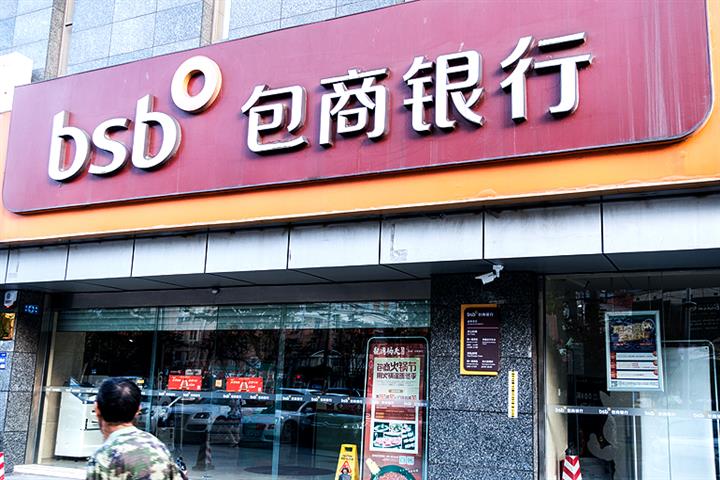 China’s Tinier Banks Face Bond Hurdle After Baoshang Writes Off USD992 Million
China’s Tinier Banks Face Bond Hurdle After Baoshang Writes Off USD992 Million(Yicai Global) Nov. 18 -- A notice by Baoshang Bank at the end of last week that the insolvent regional lender will write off a CNY6.5 billion (USD992 million) subordinated capital bond has made it harder for other small and mid-sized Chinese lenders to issue debt.
The Inner Mongolia-based bank, which was taken over by the authorities last year,will write down the full principal of thetier-two capital bondand will not pay the remaining CNY585.6 million in coupons, according to a filing it made on Nov. 13,after the country’s central bank and top financial watchdog determined that a “non-viability trigger event” had occurred atBaoshang.
It was the first time for a financial institution in China tobreak with the strict practice of repaying bonds.
Following this break with tradition, Fujian Haixia Bank said on Nov. 16 that it would cancel the sale of a CNY500 million (USD76.4 million) tier-two bond the next day due to market volatility. In the second half of this year, no other lender has cancelled a debt sale, though the pace of secondary capital bond financing by small and mid-sized banks has slowed.
“Fujian Haixia Bank cancelled the issuance probably because it failed to find investors,” bankers told Yicai Global.
It has become more difficult for smaller banks to issue tier-two bonds this half due to higher interest rates in the bond market and tighter liquidity. With investors hard to find, some banks were able to complete sales through mutually equivalent subscriptions, the bankers said. Market participants believe this situation is related to Baoshang Bank’s write-down of tier-two bonds.
Market Psychology
Baoshang Bank was jointly taken over by the People’s Bank of China and the China Banking and Insurance Regulatory Commission on May 24 last year due to serious credit risks.
Fujian Haixia Bank’s tier-two bond sale coincided with Baoshang’s“non-viability trigger event,” and the full write-down of its secondary capital debt was unprecedented. That may have a short-term impact on market psychology, said an employee at a joint-stock bank.
“The Baoshang Bank incident is within expectations, while also beyond expectations,” an insider at a listed bank told Yicai Global. “After last year’s takeover, market players were psychologically prepared for the writedown of Baoshang Bank’s existing tier-two bonds, but they thought they could get some back. They did not expect a full writedown.”
Before Baoshang Bank there were precedents for failure to repay bonds at maturity. Two city commercial lenders, Guangdong Nanyue Bank and Shandong Linshang Bank, both chose not to repay their CNY1.5 billion and CNY1.4 billion of tier-two bonds when they matured last November.
The choice not to redeem is generally passive, and may be related to the non-eligible redemption conditions, a person from the bond department at a joint-stock bank told Yicai Global. The qualifications of these banks are generally poor. It is difficult for them to refinance after repayment, and it is possible that their capital adequacy ratio cannot meet regulatory standards.
“The debt financing instruments issued by financial institutions have always been relatively safe due to strict redemption,” said a staffer from a joint-stock bank in South China. “The Baoshang Bank incident is an important signal.”
Some poorly run lenders with relatively big risks may solve their problems through mergers and reorganizations in the future, since the practice of strict redemption has been broken.
Editor: Peter Thomas